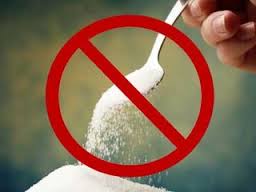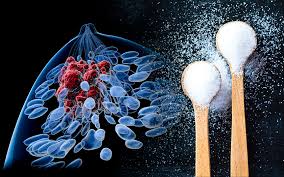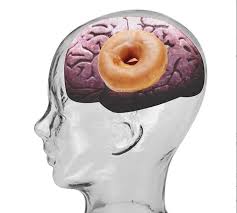
Just Say No – The Truth Hurts
Sugar is everywhere and with modern marketing you will undoubtedly be tempted with tasty drinks and treats almost everywhere you turn. If you find you are asking yourself “should I cut back on the amount of sugar I consume?” The answer is undoubtedly yes! With the rise in processed, convenient foods we are consuming more sugar than ever before as it is hidden in almost all of these foods. While the health conscious world has focused on the dangers of fat for the past three decades, sugar is now in the limelight and for good reason. Sugar has been exposed as being a large contributor to health problems such as obesity and diabetes. As you can imagine, consumption of sugar is leading to many more very real and serious health consequences.
Sugar and Cancer

Cancer, being at what seems to be the forefront of medical research for a cure, is a disease that may benefit from focusing equally on it’s prevention. In many studies, research has found that there is a valid connection between sugar intake and cancer. One way this is being researched is by looking at both glycemic load and glycemic index, which are measurements to determine how foods effect blood sugar. The higher the rated number, the more blood sugar rises from what we eat or drink. As you would probably guess foods and drinks that are high on these scales are candy, cookies, most bread and baked goods that are made with white flour, high sugar sweetened beverages, and fruit juices.
One study in the Annals of Oncology Journal found that prostate cancer is highly influenced by a high dietary glycemic index. In addition, a high glycemic load can increase the risk of colorectal, rectal and pancreatic cancers. http://www.ncbi.nlm.nih.gov/pubmed/22831983. In fact, according to research in the Journal of PLOS ONE, high sugar sweetened beverage intake has been associated with an increased rate of death from Stage III colon cancer as well as the probability of it recurring. http://www.ncbi.nlm.nih.gov/pubmed/24937507.
Sugar consumption has also been associated with endometrial and breast cancer in women. A study in the European Journal for Nutrition found an increased risk of endometrial cancer with consuming foods with a high glycemic index. http://www.ncbi.nlm.nih.gov/pubmed/22648201. An epidemiological study in the Medical Hypotheses Journal examined foods consumed and breast cancer mortality rates. They found a positive relationship between sugar consumption and breast cancer, especially in older women. http://www.ncbi.nlm.nih.gov/pubmed/6645999.
Sugar and Alzheimer’s Disease

The body and brain are often looked at as two separate entities, however the brain and body are both equally effected by nutrition. In fact, as we witness a rise in physical health problems, mental health issues are following the same pattern. Alzheimer’s disease is no doubt a debilitating disease, effecting many elderly folks and it’s onset appears to be effecting people at even younger ages than ever before. It has remained a difficult disease to understand but perhaps research is starting to go in the right direction.
The effects of a diet high in sugar on cognitive decline have become an interesting topic of research. In fact, researchers from an article by Current Alzheimer Research suggest that abnormalities in insulin, which plays a role in how the brain functions, can contribute to an increased risk for Alzheimer’s disease. http://www.ncbi.nlm.nih.gov/pubmed/18855585. Interestingly, a connection between type 2 diabetes and Alzheimer’s disease has also been discovered. According to a review in Current Opinion in Clinical Nutrition and Metabolic Care having type 2 diabetes appears to pose a greater risk of developing Alzheimer’s disease mostly related to problems with insulin signaling. Therefore, reducing sugar in the diet can decrease the risk of both type 2 diabetes and Alzheimer’s disease. http://www.ncbi.nlm.nih.gov/pubmed/23657152.
Limit Your Intake
The next time you pick up your favorite sugar sweetened treat, you may want to look a little closer at the label. On average, the recommended daily amount of sugar for an adult man is 37.5 grams and 25 grams for an adult woman. You can easily drink over the recommended daily amount of sugar by simply drinking 1 personal sized bottle of soda. Yes those seemingly small soda bottles contain an average of 40 grams of sugar! Remember, some foods that masquerade as health foods may be hiding lots of sugar as well. Many protein and snack bars average over 21 grams of sugar. So if you want to do yourself a favor, cut back on sugar in all it’s many forms, and try to stick to mostly unprocessed whole foods and you may just help to prevent an array of health problems.
Yours in Health & Happiness
Lisa
